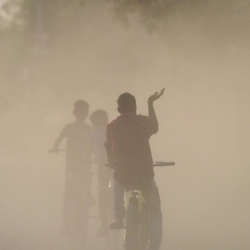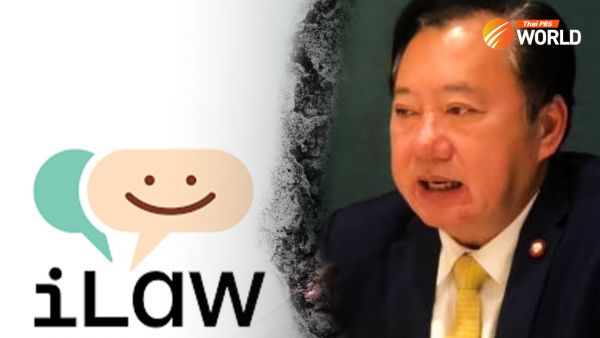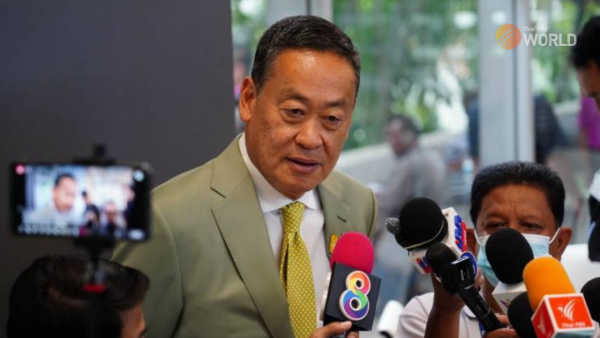Is Thailand’s love-hate relationship with legal cannabis coming to an end?

Cannabis has soared in popularity among Thais since being removed from the narcotics list two years ago and launched into an almost unregulated market. Estimates suggest the number of cannabis users in Thailand has rocketed 10 times to about 10 million – around one in seven people – since it became the first country in Asia to decriminalize the herb.
However, the “ganja good times” could soon be over, with the Pheu Thai-led government pushing for a ban on recreational use.
The dramatic U-turn comes amid complaints from non-users who want nothing to do with cannabis but say they are still being affected by its soaring popularity.
“I was sitting high up in a stadium at a concert but the cannabis smoke still reached me,” one music fan lamented recently. “When I took a toilet break, I also found smokers there.”
He wants authorities to do more to control marijuana use, pointing out that despite its well-publicized benefits, it is also associated with harmful effects. That’s why the plant was banned by law and placed on the narcotics list for decades before the Bhumjaithai Party fulfilled its key election policy to decriminalize the herb in 2022.
The initial law change, back in 2019, allowed cannabis to be used for medical purposes only. However, a lack of regulation has paved the way for marijuana to be sold widely as a recreational drug and also used as an ingredient in food, beverages, cosmetics, and more.
Cannabis was removed from the narcotics list in June 2022, but extracts containing more than 0.2% of its psychoactive component, THC, are still categorized as a Category 5 narcotic.
However, the regulations do not cover ganja in its raw form, so stalls and shops selling “weed” and its paraphernalia have mushroomed across the country and online.
Efforts to tighten control
As the outcry over recreational marijuana use grew, Bhumjaithai initially blamed the COVID-19 pandemic and strict lockdown measures for slowing its push for a law to control its usage. Yet even though COVID restrictions are now a distant memory, cannabis regulation still looks a long way off.
Bhumjathai’s draft regulation bill has at least entered Parliament, but critics worry it will do little to curb recreational use since it allows marijuana to be consumed in households and licensed public parlors.
A rival draft bill to regulate marijuana and hemp will soon be proposed to the Cabinet by the Public Health Ministry. Drafted by the Department of Thai Traditional and Alternative Medicine, this bill would prohibit recreational marijuana altogether.
Dr Smith Srisont, a member of the Medical Council and president of the Forensic Physicians Association of Thailand, believes the latter bill is better because it will ban people from using marijuana for purposes of “recreation”.
Yet not everyone is happy. Prasittichai Nunuan, a representative of the Writing Thailand’s Cannabis Future Network, said the definition of “recreation” in the bill was problematic.
“It may spawn extortion and corruption [by law enforcers]. Who will determine if a person is smoking cannabis to treat flatulence or just to get high?” he asked. “Will taking cannabis to ease stress be classified as recreational usage too?”
He also pointed to the tough penalties prescribed by the bill. It carries a fine of up to 60,000 baht (about US$1,660) for anyone caught using marijuana for recreational purposes.
“This punishment is included in the draft bill despite it currently being okay to carry up to five tablets of methamphetamine,” Prasittichai said sarcastically. He was referring to a new rule that classifies meth abusers as addicts in need of treatment rather than as criminals.
In Prasittichai’s opinion, the Department of Thai Traditional and Alternative Medicine has drafted a biased bill driven by its paranoia over recreational marijuana use.
“Your fear is so irrationally large that you failed to think of consumers’ protection,” he said, attacking the drafters.
Long way to go
Dr Smith said there was still a long way to go before either of the cannabis bills would take effect. Meanwhile, he said, the country should restore the drug’s status as a narcotic to curb the negative impacts of its abuse.
His suggestion resonates with the Justice Ministry’s move to ask the Public Health Ministry to categorize cannabis buds – where the plant stores most of its THC – as a narcotic.
“But we will need to consult the Narcotics Control Board first,” said Public Health Minister Cholnan Srikaew.
Members of the board, which is chaired by Deputy PM and Energy Minister Pirapan Salirathavibhaga, come from various sectors.
Smith said more campaigns should be conducted to raise public awareness of cannabis’s danger. He said studies showed that habitual users who started taking cannabis before the age of 20 suffer from poorer memory and concentration. Other impacts include learning problems and poorer judgment, he added, while those who started using cannabis before the age of 15 faced a higher risk of developing mental disorders in early adulthood.
‘Alarming trend’
Assoc Prof Dr Rasmon Kalayasiri, director of Chulalongkorn University’s Center for Addiction Studies, estimates the number of cannabis users in Thailand has grown to 9.9 million. Among legal drugs, cannabis is second only to alcohol in terms of popularity. It even beats cigarettes, with 9.8 million smokers.
“This is alarming. Consumption of marijuana has risen about 10-fold since it was removed from the narcotics list,” she said. “Over the same period, use of medical marijuana has not grown in anything like the same exponential way.”
The Princess Mother National Institute on Drug Abuse Treatment reported that 22,083 people sought treatment for marijuana addiction in 2022. That figure almost doubled to 41,516 last year.
“Last month alone, up to 14,543 sought treatment for cannabis addiction,” the institute revealed.
Justice Minister Pol Col Tawee Sodsong said lax control of marijuana had made it possible for people, including youths, to access cannabis products like marijuana-laced snacks and beverages.
“Marijuana can affect the brain. Youths who use cannabis are also at risk of graduating to other narcotics in the future,” he claimed. “When marijuana is abused, many more problems follow.”
Innocent-looking products sold in Thailand that contain cannabis can also cause problems for foreign visitors. Tourists who inadvertently pack these products in their luggage can be prosecuted when they return home or leave Thailand for a different country, given that the drug remains illegal in most territories.
The United Nations still classifies cannabis as a narcotic, though it has given the green light to medical marijuana.
By Thai PBS World’s General Desk






